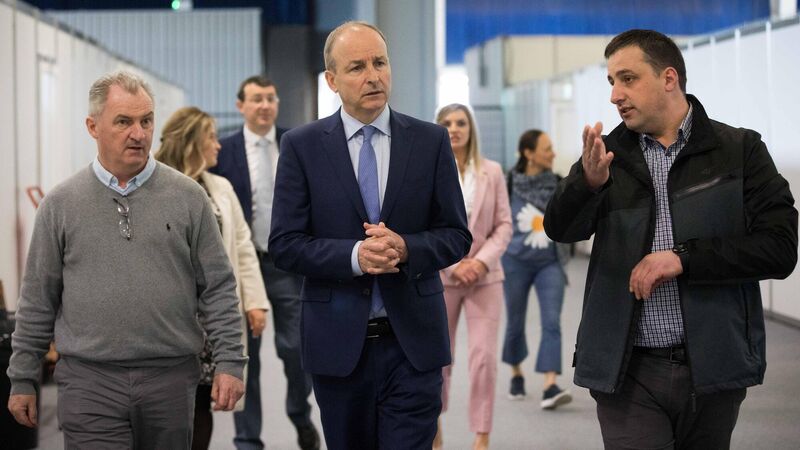Talks continuing over €400 payment for people who host Ukrainians fleeing war

Taoiseach Michéal Martin being shown around the emergency accomodation centre at the Millstreet Green Glens Arena by Thomas Duggan and operations manager Karol Smiech. The Government is considering a number of measures including payments to families who host Ukrainian refugees. Picture: Eamon Ward
High-level Government talks are at an advantaged stage to pay people who take in Ukrainian refugees.
Officials from the Department of Social and Protection, Department of Children, and Department of Public Expenditure have been engaged in ongoing discussions around the €400 per month payment proposed for those who have opened their homes to those fleeing the Russian invasion.














